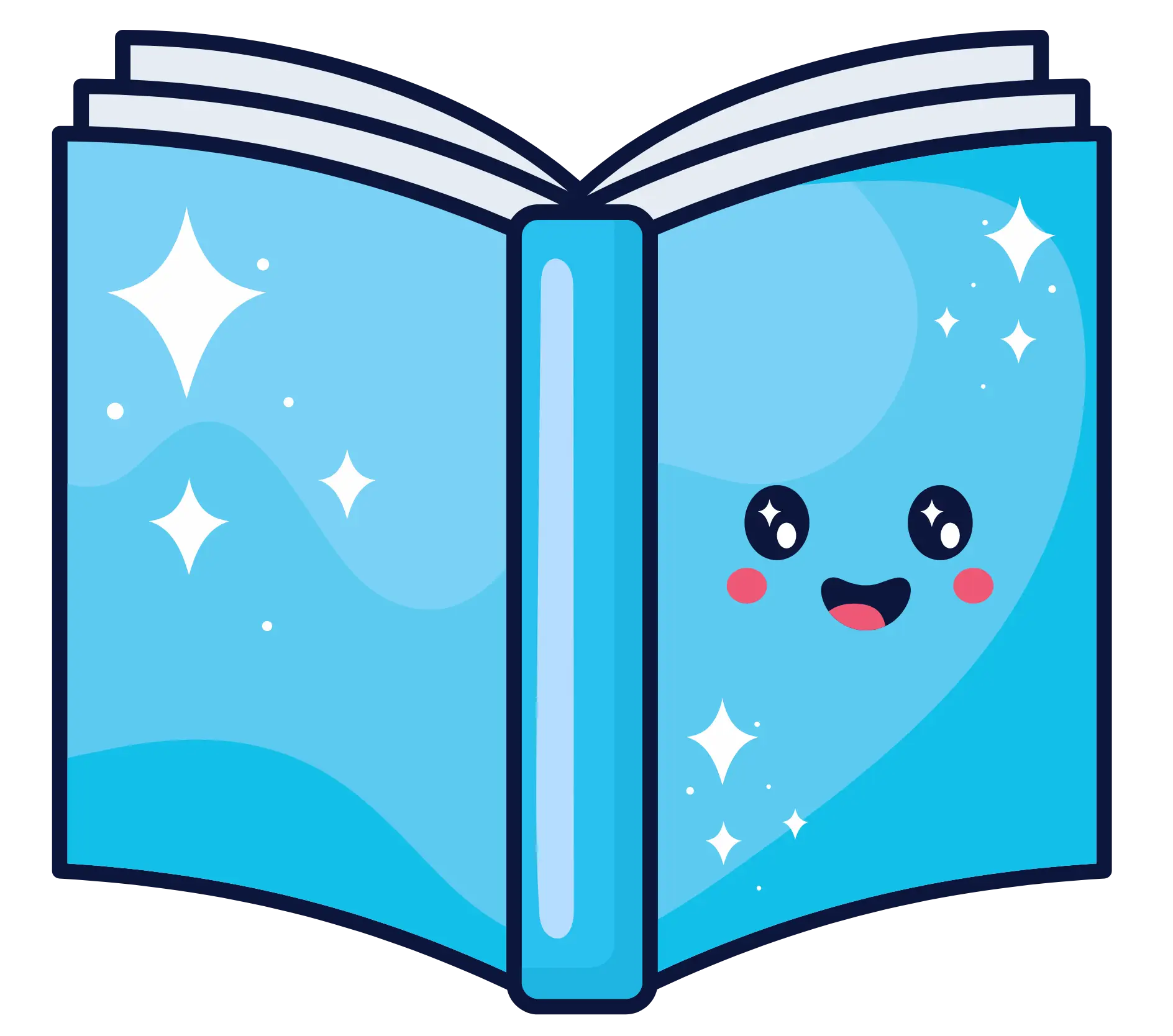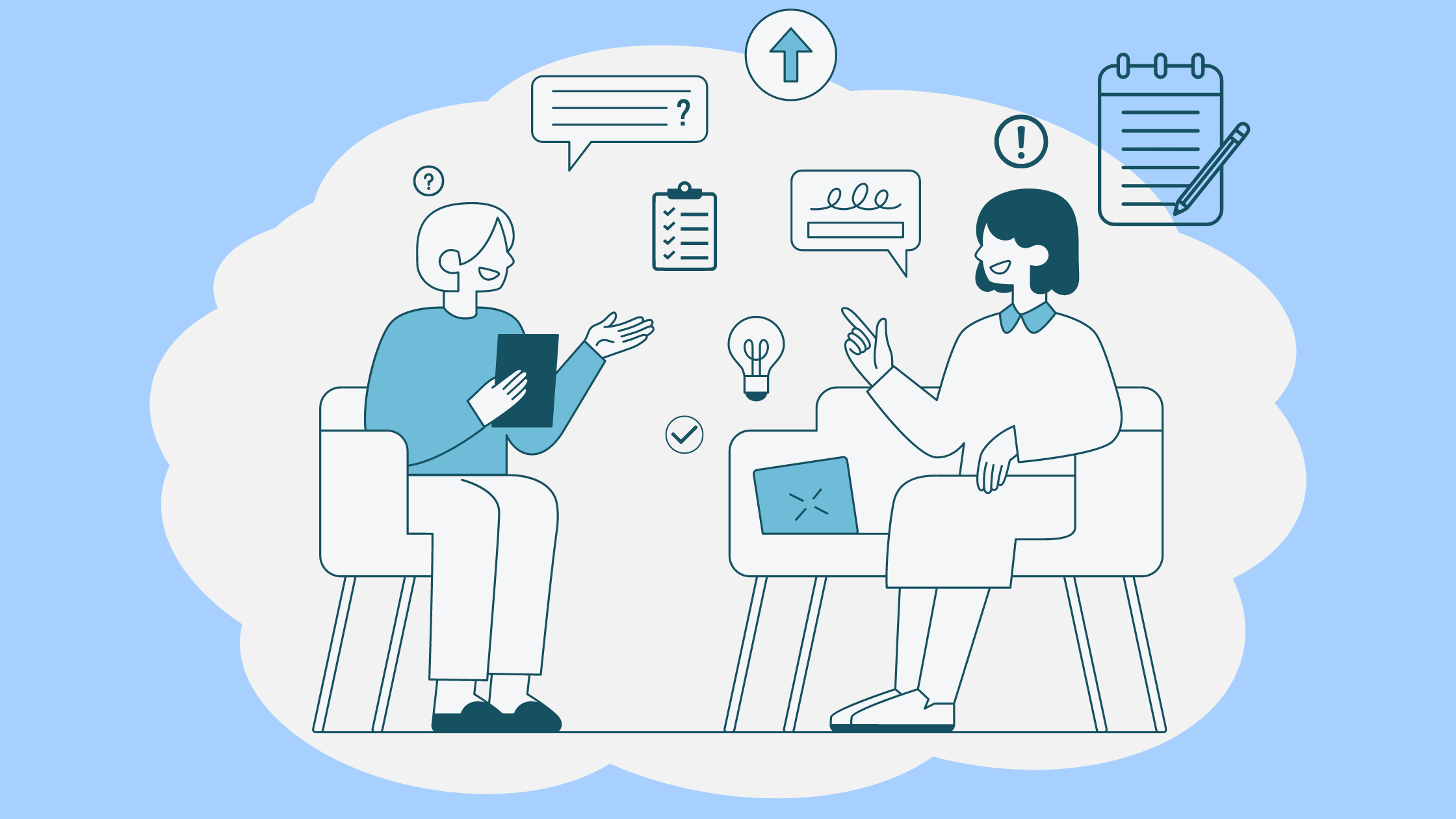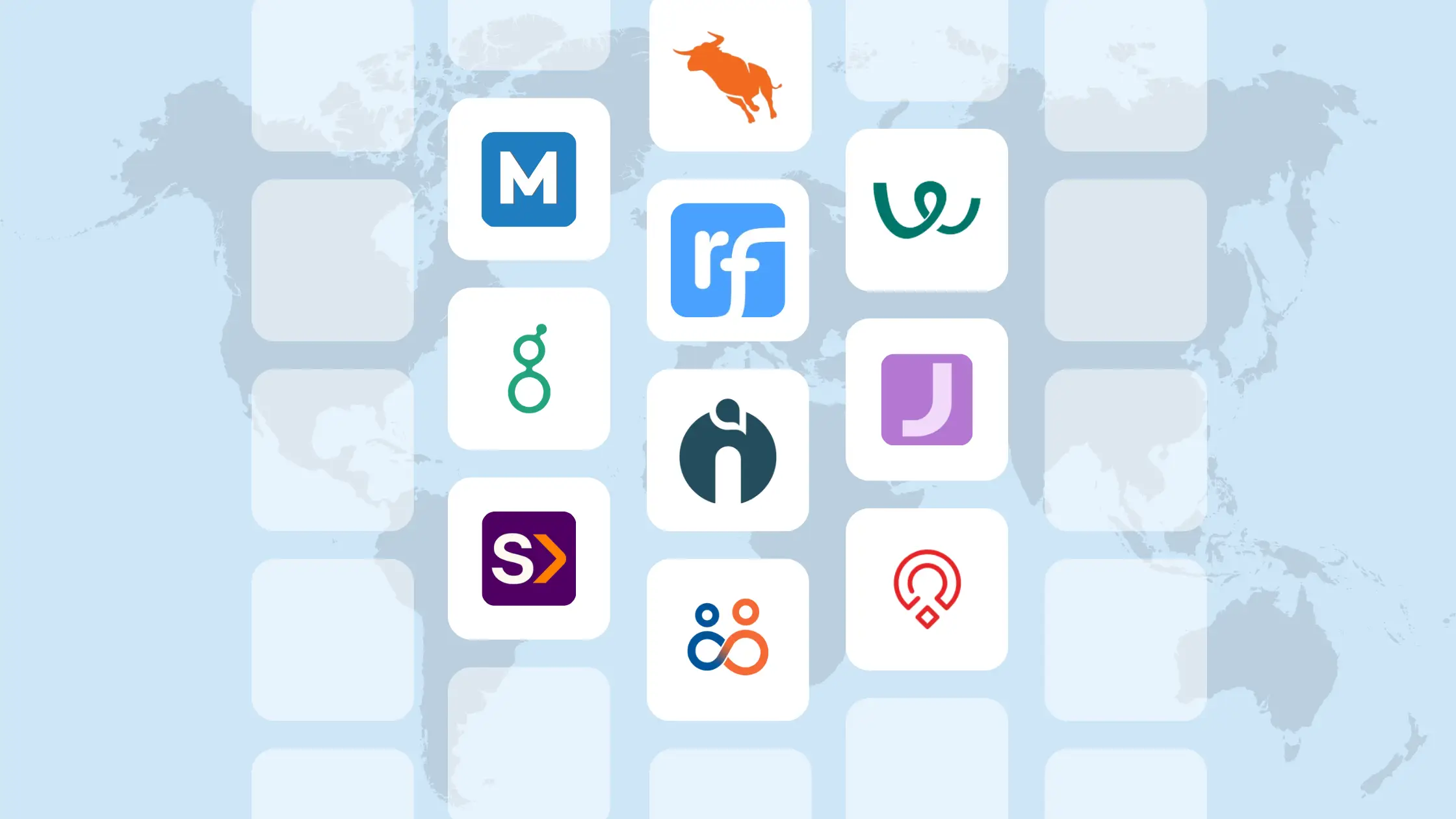Job Interviews can be stressful, but if you knew the questions that the interviewer would ask you, wouldn't it be a boon?
Though we do not practice mind-reading or any kind of sorcery, and we do not recommend mugging up answers for every interview question, we do bring you a list of questions that are likely to be asked in an interview.
Also, If you understand the interview process and prepare for common questions, you can confidently navigate the interview. Interviewers ask these questions to get an idea about the candidate regarding their skills, interests, work experience, and so on. So, consider this list as your interview question study guide for your next interview.
Top 11 Common Job Interview Questions and Answers
Job interviews can feel overwhelming, but being ready with answers to the most frequently asked questions can boost your confidence. Interviewers usually ask these questions to understand who you are, what you bring to the role, and if you’ll be a good fit.
In this guide, you'll learn about 11 common questions you'll likely face and offer simple tips to help you answer them confidently.
Let’s dive in!
1. Can you tell me about yourself?
This is the simplest and one of the common questions during the interview, yet people fail to prepare for it. Normally, when this question is asked, people give their whole employment or educational history, but the key is to pitch 2 to 3 accomplishments that show that you are fit for the applied job and end it with how those experiences will help you in this role. Define what you do and the interests that relate to the job. You can also script what you want to say as this is a definite question, and practice well.
Sometimes, the interviewer wants to know more about you than what you have mentioned in the resume. They are giving you a chance to tell more about yourself. Be confident and share your interests, likes, and accomplishments. Try to explain what you are and what you could do for the company, but remember not to overshare.
2. What are your strengths?
For this question, make your answer very specific. For example, instead of saying you are a people person, you should be specific and say that you are great at building relationships and have good communication skills. Also, you can add an example of how you used those skills in your previous work experience. Hiring an expert to help with interview coaching can help here. They will help differentiate your answers from other candidates.
Brainstorm and list your top strengths. Mention those strengths that are appropriate to the job role. For example, if you are interviewing for a manager position, you can add your strengths related to leadership. If you are unsure about your strengths, you can ask your friends or colleagues about the best qualities they see in you. It is good to get an opinion from others. Be accurate and tell those strengths that you are sure you possess.
3. What is your weakness?
Weakness is a question that can make or break your chances of getting a job. Here, your interviewer is testing you on how self-aware you are, so do not answer it by saying you don't have any weaknesses or that you work too hard. Instead, tell them about something you struggle with but are trying to improve. For example, you can say that you are not too good at public speaking, but you recently participated in a debate or will try your hands in the open.
Weakness can also depict something which is not negative. For example, you can say, I give a lot of attention to details, or I have trouble saying no. Be truthful and try to answer your weakness instead of saying that you don’t have any. The interviewer checks how good you are at accepting your weaknesses and how you explain how you are working on them.
4. Why do you want to work here?
No one wants to hire a person who works only for the money, they want to hire someone passionate about their work. You can look at the requirements of your role and how they fit and interest you and add how you like the company and, for this reason, would like to work in that company.
Do research on the company you are appearing for the interview with. Learn completely about what they are doing, what they offer, and their company culture. Have a positive approach while answering this. This would help you to better answer this question.
5. Where do you see yourself in five years?
With this question, the candidate is being tested on two bases: Firstly, If they are ambitious and secondly, if their future goals align with the current job position. The best way to tackle this question is by thinking realistically and replying to where the job position would take you. They want to know your career goals and understand if you are an ambitious and career-oriented person. You could also add that you are not sure and you are open to exploring this job position to help you decide for the future.
6. Why are you leaving your current job?
The key factor here is to keep things positive and not frame your previous employers in a bad light. Answer it in a way where you seem excited about exploring new opportunities or that the new position is a better fit for you. Looking for new career opportunities could be the reason for leaving the current job. You can mention it by saying that you are looking for career growth. If you have been let go from your previous job, be truthful about it and keep it simple. Be honest with the reason for leaving your current job and try to approach this question in a positive way.
7. What are your interests and hobbies?
Sometimes, the candidates are asked about their interests and hobbies to find out how they would fit the company's culture and understand their personalities. So, keep it mildly professional and open up about your interests. You can always add up your hobbies that’s in the interest of the company or that would fit their company culture. You can add your interests such as cooking, gardening, painting, creative arts, etc that would present a creative side of yourself.
8. What are you passionate about outside of work, and how does it influence your professional life?
When answering, start by sharing a personal passion that genuinely excites you. For example, if you're passionate about hiking, you can emphasise how it challenges you both mentally and physically. Then, draw connections between that passion and how it influences your professional life. Hiking may teach you perseverance, patience, and the ability to overcome obstacles, which directly relates to problem-solving at work.
Additionally, you can mention how spending time outdoors refreshes your mind, allowing you to return to work with greater focus and creativity. Highlight the balance this passion provides between personal fulfilment and professional productivity. This not only shows your multidimensional nature but also demonstrates how your interests contribute to your overall performance.
9. Why should we hire you?
This can be one of the questions in your interview. You can answer this by saying that you are the right fit for the position and you deliver the expected results on time. Even if you don’t have an idea about some things, you can always say that you would learn and will be a great addition to the team. So, the best way to answer this question is by telling them that you can work with zest and deliver the required results and would fit perfectly their team and culture.
10. What are your salary expectations?
Letting your future employer know about your salary requirements can be tricky as you do not want to pitch too high or too low. This depends on the industry, position, work experience, prior salary history. So, it's better to do some research on job boards where you can find a range of income for similar job positions based on skills, education qualifications, experience, etc. Based on this, pitch your salary requirement, but make sure that the interviewer knows that you are flexible and that you negotiate according to your skill value. Make a point that says you are negotiable and would agree upon industry standards.
11. Do you have any questions for me?
This is usually the last question of your interview and your last chance to leave a strong impression. So, grab the opportunity and find out if the job is right for you by knowing more about the job position, the department, and the team. You can ask questions on the position that is offered to you, work culture, and anything that would mark a good impression in the interview. You can even ask about the latest developments in the company.
The above interview questions will surely help you have an idea about the interview and how you can prepare for it. Now that we have covered all the common job interview questions, it's time for you to practice and do your research about the company. Finally, add a pinch of confidence and a smile and you are all ready for your job interview!
Final Wrap-up
Let's wrap this up!
So, we've gone through the top 11 common interview questions and how to tackle them.
Remember, the key is to be honest, stay calm, and show your personality. Interviewers aren't just looking for canned responses; they want to see if you're a good fit for their team.
When they ask about your strengths, don't be shy to share what you're really good at. And when it comes to weaknesses, spin it positively by talking about how you're working to improve. Always have examples ready to back up your claims.
Talking about your past experiences and achievements is your chance to shine. And if they ask about a time you failed, don't panic. Everyone makes mistakes. What's important is showing what you learned from it.
When discussing your career goals, be ambitious but realistic.
Lastly, always have questions ready to ask at the end. It shows your interest in the role and gives you a chance to learn more.
So, take a deep breath, believe in yourself, and go ace that interview! You got this.










